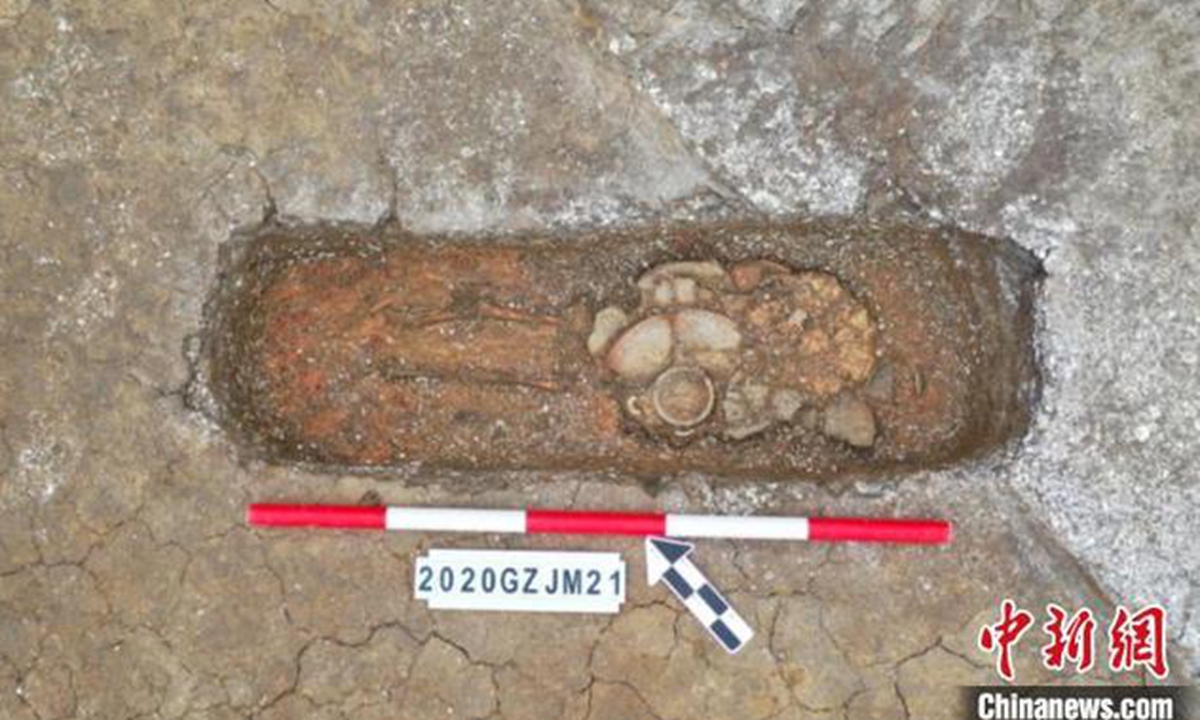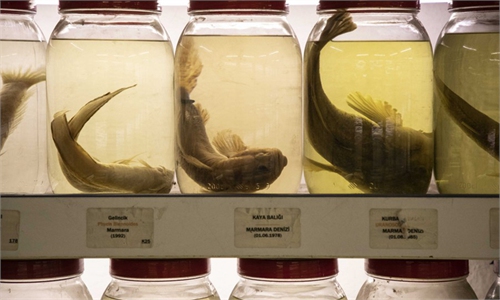ARTS / CULTURE & LEISURE
12,000-year-old human remains discovered in China’s Guangdong Province

Discovered human remains Photo: Snapshot of China News
Chinese archaeologists have found a total of 30 human remains during the excavation of 32 ancient tombs at the Jinlan Temple site in Guangzhou, capital city of South China's Guangdong Province, the China News reported on Monday.The excavation site located at the city's Jinlan Temple is one of the earliest prehistoric sites in Guangzhou. The archaeological excavation covers an area of 800 square meters. As of late March, prehistoric shell mounds have been discovered over a 500-square-meter area, along with 30 ancient human remains and 32 ancient tombs that can be traced back to the late Neolithic period (12,000 years ago) and the Warring States Period (475BC-221BC), as well as sea shells and fish bones.
Most of the bones in the Neolithic tombs are relatively intact, making them a very rare discovery in China's Pearl River Estuary and even in the Lingnan region, said Yi Xibing, dean of the Guangzhou Institute of Cultural Relics and Archaeology.
The 30 human remains will be rich resources for the further development of bone and tooth morphology, paleopathology and ancient DNA analysis, and research into the population migrations and the restoration of the Pearl River Estuary's ethnic morphology during the pre-Qin period(before 221BC), according to Yi.
Global Times



